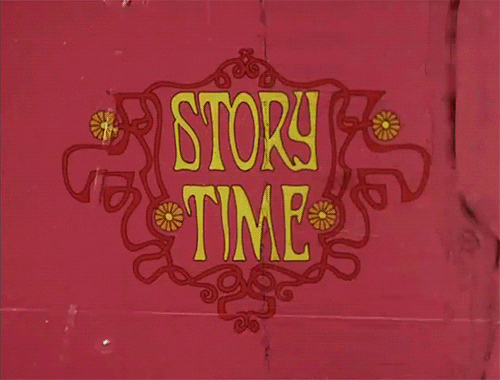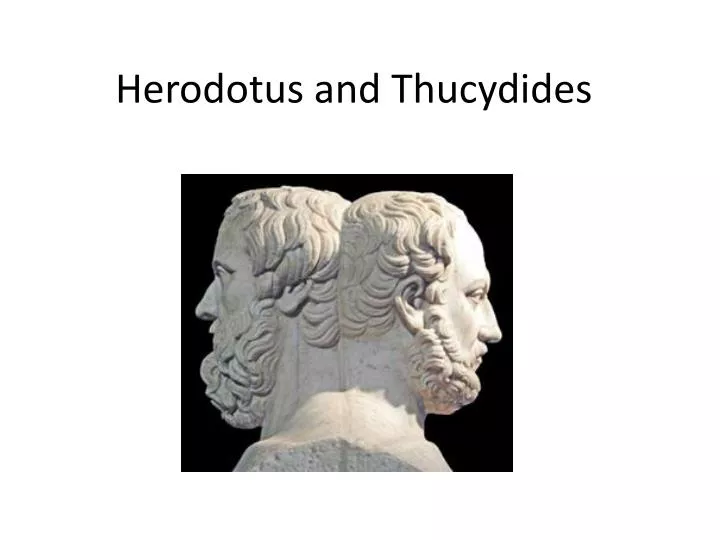Seasoned Greetings!
Dec 14, 2022
Remember the Island of Misfit Toys in Rudolph the Red-Nosed Reindeer? I loved watching this classic cartoon each year because I've always felt a bit different. I recall imagining that I was a character in that classic cartoon and choosing to live on the Island of Misfit Toys with Rudolph and his red nose, Hermey the elf who wanted to be a dentist, the squirt gun that shoots jelly, and Charlie in the Box. I thought to myself, “Who wouldn’t want to live in a place where everyone was special?” If it would have been a real place, it surely would have made it to my bucket list.

But the problem with the Island of Misfit Toys is that all the truly exceptional toys were there and not polka-dotting the toy boxes of children across the world. Hermey and his buddy Yukon Cornelius ‘got that’. They knew that a world without uniqueness was really no world at all. And because they, too, were special, they knew that those toys wanted to be given and loved by children just as much as the children longed to love them. And, thus, why this time of year is known as the season of giving. So much so that this season even has a spokesman: Santa. I mean really, Santa…Who’s more generous than that guy?
When you think about who the Quarterback, Supermodel, Sexiest Man Alive of Giving is, 9 out of 10 people surveyed would pick Jolly Ole St. Nick. Lore passed down from generation to generation indicates that the modern Father Christmas was derived from the Dutch figure Sinterklaas, which, in turn, was based on tales of a Christian bishop and gift-giver Saint Nicholas. Suffice it to say that if Twitter would have existed in the 4th Century, Saint Nicholas would have been the reason that giving was trending.

The cool thing about the giving trend and Santa, Hermey, Yukon Cornelius, Sinterklaas, and Saint Nicholas is that, although they were alike in many generous ways, they were also different in their generosity. That’s why, even today, generosity comes in all shapes and sizes. Giving is, and should be, as unique as the giver.
The story of Rudolph resonated with me as a kid—and still does. Some love the story of Santa Claus. Others are fans of A Christmas Carol, The Nutcracker, or It’s a Wonderful Life. Your Christmastime story of choice really doesn’t matter. What does matter is how you embrace story.
There’s no doubt that stories are important to us. They bring back memories. They give us all the feels. They provide a shared experience that brings us closer together. Stories are compelling.

Clearly, if you’re not telling your donors stories in your donor communications, you’re really missing out on the impact of this powerful marketing tool. And, as usual, there are both left brain and right brain strategies to do this well.
Left Brain Marketing Methods: Do stories need evidence, analysis, facts, and figures? Of course, they do and your left brain loves that stuff. So did Thucydides. What? You’ve never heard of Thucydides? Never fear, he has a lot to teach you about telling a believable story.
Right Brain Marketing Moxie: Do stories need some subjectivity, a bit of emotion, and perhaps a bit of creative license? I’d say yes. Luckily, your right brain loves that stuff. So did Herodotus. As a storyteller, Herodotus brought the creative energy and listeners were there for it.
It’s the holidays and we love a good story. Aw, heck, we love a story even when we aren’t in one of the brrr months: Septembrrr, Octobrrr, Novembrrr, and Decembrrr.
So, let the once-upon-a-time-ing begin!
Thucydides. I don’t really know how to pronounce his name either but stick with me here and keep reading. His story is important to your left brain marketing methods.
Thucydides is the Father of Scientific History like Santa Claus is the Father of Christmas, without all the fanfare. He was Mr. Left Brain. In the world of storytelling, he was known to write historic records that were spot-on accurate, even with eyewitness accounts. He had strict standards of always measuring, recording, and reporting with supreme accuracy. He was known to be highly impartial and gathered his evidence with extreme analysis. He was all facts and figures, with no room for fantasy. He was data driven.
Seth Godin complemented the strategy of Thucydides when he wrote, ‘The Thing is that facts almost never get in the way of a good story’. He’s right. ‘Because a good story feels true’. Yes! ‘A good story resonates’. Amen!
Facts are important to good stories. They add layers to a story that prove their believability. Not only that, but facts also give donors what I always call ‘a hook to hangs things on’.

For example, say you tell a great donor story that some donors can’t relate to at all. If the storyline doesn’t share any commonalities with a subset of donors, it could fall flat—without facts.
Salt and pepper in a few facts and you could save the day. What type of philanthropy did the donor use to make a difference, for example? Specifically stating the facts, like a donor-advised fund, a designated endowed fund, or a named unrestricted fund will give your donors good ideas about what they could do if they wanted to make a similar impact. It’s a hook.
Document what type of donations your donors make. Certainly, stories that incorporate the factual type of giving can give your readers ideas about how they’d like to be generous. Telling about a bequest that changed lives, how the donor gave through insurance, or how the donation of an IRS Required Minimum Distribution improved the quality of someone’s life are effective. More hooks!
What Thucydides knew and what you should learn from him is that good stories are important. Write them down before your donors pass away. Get the story straight from the horse’s mouth—the eye-witness account. Save them in story banks, so the facts don’t leave the organization when you do.
Then, generously sprinkle those facts into your stories like you would a decorated Christmas cookie. Sure, the cookie might be good on its own—but with sprinkles, it’s so much better!
Herodotus. I don’t know how to pronounce his name either but stick with me here and keep reading. His story is important to your right brain marketing moxie.
Herodotus was dubbed the Father of History, a title that stuck with him for centuries. Ya see, Herodotus was a storyteller in the most wonderful way. A real Frank Capra of his time. He didn’t much care about the facts, per se. He garnered that attention of his listeners and if facts helped that, then so be it. He believed firmly in what we now call creative license. Objectivity was not his jam. He was subjective and inventive and added his own ideas and thoughts intermingled with the story at hand. If he was a superhero, his superpower would have been exaggeration. Readers and listeners loved the stories he had to tell because they were engaging and entertaining. He was a clever one that Herodotus. He was narrative driven.

I love the subtle difference between their monikers:
Thucydides: The Father of Scientific History
Herodotus: The Father of History
That one word—scientific—explains a lot, doesn’t it?!
Herodotus wanted to engage his audience. Sure, he knew that sometimes a bit of embellishment was required to get the attention of the audience or hit home with the core message. He didn’t much care if those additions weren’t synonymous with eye-witness accounts. He was trying to move people to action with emotion after all.
Whatever drama and emotion that he could pull out of his storytelling hat was fair game in the mind of this Father of History—he made history come alive, after all.

Yet again, Seth Godin is here for the assist supporting the work of Herodotus saying, ‘A good story is based on our feelings, long-held and hard-earned’. Truth! ‘A good story sticks with us, regardless of the facts.’ Also true; oftentimes, we recall the basic story and none of the real facts, especially if the storyline pierced our hearts. ‘But facts alone have little chance in a battle with a good story.’ Herodotus for the win--no wonder his name starts with Hero! An amazing story will trump facts every single time.
Your right brain needs to get to work. Grab those stories and tell them well. Look to the stories you love the most. Stories from your childhood, stories from the holidays, or stories that you tell repeatedly. What is it about a good story that you love? Take those same ingredients and craft a creative story about your donor’s generosity.
Interview your donors. Take notes. Write your first draft with the basic details of their generosity. Then, embellish to create a story that engages the reader. Finally, season generously with the facts. Write Seasoned Greetings! 😊 (See what I did there?) No, the facts don’t make the story, but they make the story even more believable. Facts give integrity to your creativity. And that’s worth its weight in gold.

It’s too bad that Herodotus preceded Thucydides chronologically. Thankfully, we can learn from both and easily integrate the best of what they each had to teach us; stories can be both objective and subjective because you really need elements of both. These two gents could have written beautiful stories together. But the fact that they had markedly different strategies for storytelling, yet still both held time-honored historic titles as supreme tellers of tales speaks volumes. They could have been independent together!

Who wouldn’t want to give to a charity that had such special stories to share? Don’t leave those great stories on a metaphoric island, never to be seen or heard by anyone again. The truly exceptional stories need to be polka-dotting the mailboxes of donors across your community. You know it. I know it. Thucydides and Herodotus knew it. Heck, even Hermey and Yukon Cornelius knew it. So, what are you waiting for, give your donors some stories for Christmas!
All My Best,
Dawn
[email protected]
dawn brown creative, llc.
P.S. Fundraising is hard, even though you make it look
oh-so easy! ♥
Frideas--Friday ideas are filled with
info and inspo!
Want to participate in some Knowledge Generosity,
here's your opportunity!
What do you do with an idea? You change the world!
Stay connected with news and updates!
Join my mailing list to receive the latest news, updates, and ideas for days!
Don't worry, your information will not be shared.
I seriously hate SPAM, like for real.
So, I promise to never sell your information, for any reason.



